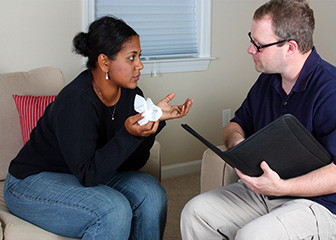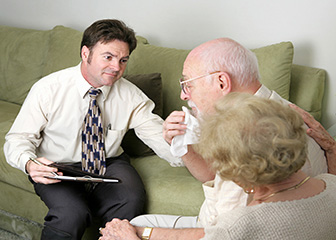Summary

| Quick Facts: Mental Health Counselors and Marriage and Family Therapists | |
|---|---|
|
$39,710 per year
$19.09 per hour |
|
| Master’s degree | |
| None | |
| Internship/residency | |
| 156,300 | |
| 37% (Much faster than average) | |
| 58,500 | |
What Mental Health Counselors and Marriage and Family Therapists Do
Mental health counselors and marriage and family therapists help people manage or overcome mental and emotional disorders and problems with their family and relationships. They listen to clients and ask questions to help the clients understand their problems and develop strategies to improve their lives.
Work Environment
Mental health counselors and marriage and family therapists work in a variety of settings, such as private practice and mental health centers. Most work full time.
How to Become a Mental Health Counselor or Marriage and Family Therapist
All states require both mental health counselors and marriage and family therapists to have a master’s degree and a license to practice.
Pay
The median annual wage of mental health counselors was $38,150 in May 2010. The median annual wage of marriage and family therapists was $45,720 in May 2010.
Job Outlook
Employment of mental health counselors is expected to grow by 36 percent from 2010 to 2020, much faster than the average for all occupations. Employment of marriage and family therapists is expected to grow by 41 percent from 2010 to 2020, much faster than the average for all occupations. Growth is expected as the overall population grows and as insurance companies increasingly provide for reimbursement of counselors and marriage and family therapists as a less costly alternative to psychiatrists and psychologists.
Similar Occupations
Compare the job duties, education, job growth, and pay of mental health counselors and marriage and family therapists with similar occupations.
O*NET
O*NET provides comprehensive information on key characteristics of workers and occupations.
Contacts for More Information
Learn more about mental health counselors and marriage and family therapists by contacting these additional resources.











